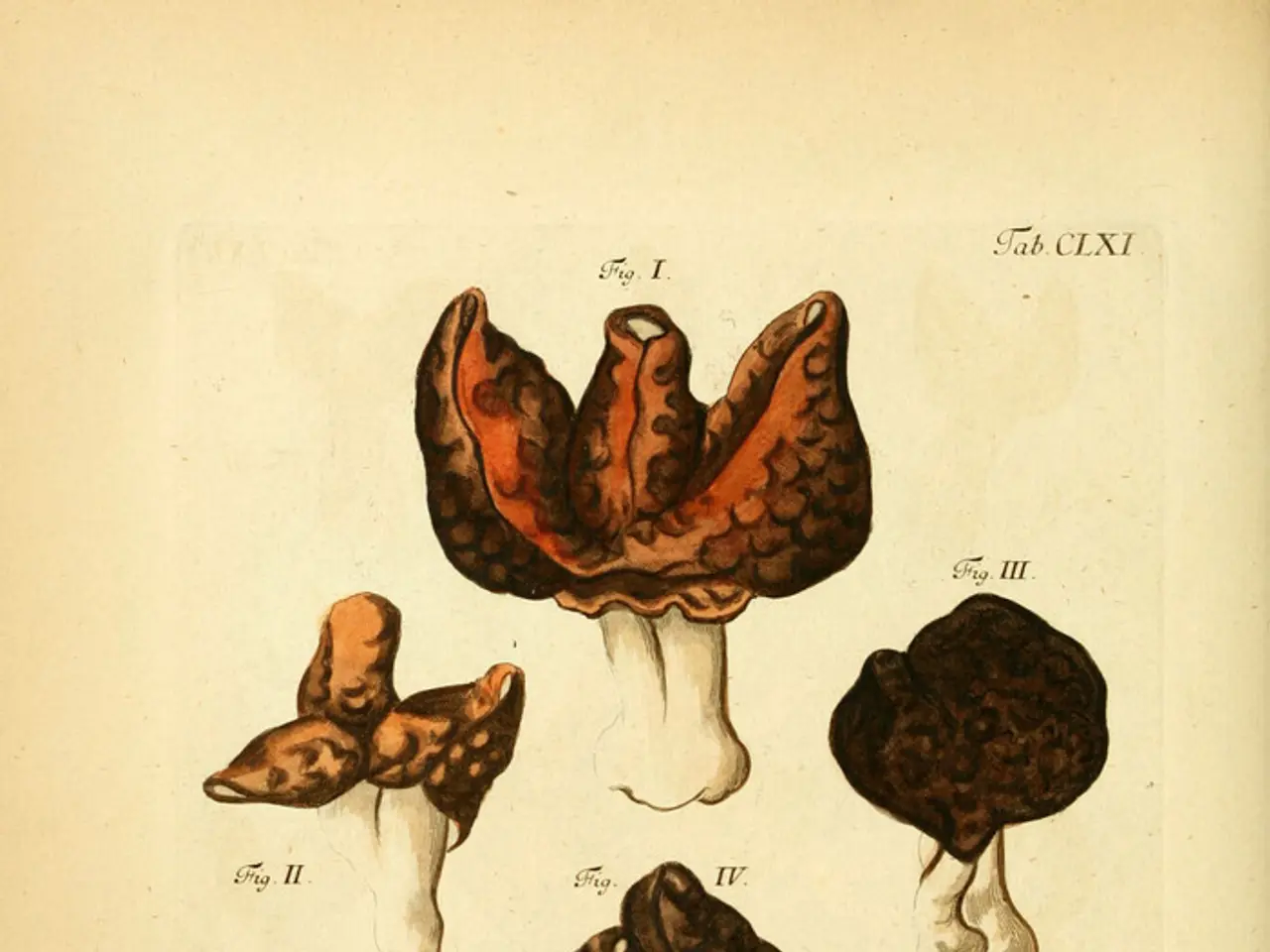Daily intake of apple cider vinegar on an empty stomach: Evaluation of its effectiveness
Apple Cider Vinegar: A Double-Edged Sword in Your Health Routine
If you're one of the many folks who swig a bit of apple cider vinegar (ACV) every morning to kickstart your day, hold up! This ancient remedy might have some health perks, but it's not all sunshine and roses. Let's dive into the potential risks of daily ACV consumption.
1. Say Cheese...To Toothache
ACV's acidity (with a pH of 2-3) can be a tooth's worst nightmare, stripping away enamel and leading to tooth sensitivity, cavities, and increased oral infections.
2. Ouch, My Esophagus!
Gulping down undiluted ACV can cause throat pain, stomach burning, and even exacerbate conditions like gastritis or ulcers.
3. Walking on Bonebroke
Chronically downing large quantities of ACV has been connected to reduced blood potassium levels, which can lead to muscle weakness, cramps, arrhythmias, and even kidney damage.
4. Medication Mix-Up
ACV can amplify the effects of certain medications, such as insulin or oral hypoglycemic agents, increasing the risk of hypoglycemia, or thiazide diuretics, exacerbating potassium loss.
5. Slow and Steady Loses the Race
ACV can slow down your stomach's emptying process, causing feelings of heaviness, bloating, and nausea, especially common in people with gastroparesis (common in diabetics).
6. Burn, Baby, Burn!
Direct consumption of undiluted ACV has caused oral and esophageal burns, particularly in children or the elderly, according to the National Capital Poison Center.
In 2006, a 28-year-old woman developed osteoporosis and low potassium levels after consuming 250 ml of apple cider vinegar daily for six years, which is an isolated case.
On the bright side, ACV can offer some benefits, such as:
- Sweet on Sugars
Consuming ACV before meals might help improve insulin sensitivity and reduce blood sugar spikes, particularly in people with insulin resistance or type 2 diabetes[1].
- Full and Fabulous
Drinking ACV can make you feel fuller, potentially reducing your daily caloric intake[1].
- Cholesterol Chasers
In animal studies, ACV has shown a decrease in LDL cholesterol and triglyceride levels[2], although human evidence is still limited.
- Antibacterial Action
ACV boasts antibacterial properties, especially against bacteria like E. coli, which explains its use in food preservation and home treatments (NOTE: topical application, NOT internal)[3].
The Dilution Dilemma
To minimize the risks, it's recommended to dilute your daily ACV dose with at least one glass of water. A suggested dose is 1 to 2 tablespoons (15-30 ml) daily, max[1]. Be sure to use raw, unfiltered ACV with "the mother" - the natural sediments that contain bacteria and enzymes[4]. Remember, undiluted ACV can damage your teeth, irritate your throat or stomach[1][2].
Captain trades in for new luxury truck; Senator explains why: "It's an extraordinary brand". Who is Mario Quintero, vocalist of Los Tucanes de Tijuana who threatened Monica Garza? This herb protects the liver, reduces inflammation, and aids in weight loss, but few know its benefits
In essence, while ACV may have some health benefits, daily intake of it undiluted poses risks of dental erosion, throat injury, digestive discomfort, and possible negative effects on bone health. Dilution, caution, and medical consultations help prevent these adverse effects.
References:
[1] Mayo Clinic. (2021). Apple cider vinegar: Health benefits, uses, and risks. Retrieved November 9, 2022, from https://www.mayoclinic.org/healthy-lifestyle/nutrition-and-healthy-eating/in-depth/apple-cider-vinegar/art-20048020
[2] National Center for Complementary and Integrative Health. (2021). Apple Cider Vinegar: In Depth. Retrieved November 9, 2022, from https://www.nccih.nih.gov/health/apple-cider-vinegar
[3] National Capital Poison Center. (2022). Apple Cider Vinegar. Retrieved November 9, 2022, from https://www.poison.org/prevention/everyday-life/food/apple-cider-vinegar
[4] The American Journal of Clinical Nutrition. (2010). Vinegar: Medium-chain acyl-CoA dehydrogenase deficiency controls acetate oxidation and metabolism. Retrieved November 9, 2022, from https://academic.oup.com/ajcn/article/92/6/1595/5862513
[5] Journal of Diabetes Research. (2013). The effect of vinegar on blood glucose and serum triglyceride levels in individuals with type 2 diabetes mellitus. Retrieved November 9, 2022, from https://www.ncbi.nlm.nih.gov/pmc/articles/PMC3836693
1. Health-and-wellness enthusiasts might preferably consume apple cider vinegar (ACV) diluted to minimize oral and esophageal burns, covered previously by the National Capital Poison Center.
2. Frequent and undiluted ACV intake could potentially lead not only to dental erosion as mentioned earlier but also to kidney damage and muscle weakness, as shown in an isolated case from 2006.
3. Vinegar's benefits to science have been demonstrated in certain contexts, such as reduced LDL cholesterol and triglycerides in animal studies, although definitive evidence in human studies remains limited as of now.
4. Therapies-and-treatments for conditions like type 2 diabetes may find a supplemental role in ACV, as ingesting it before meals can improve insulin sensitivity and reduce blood sugar spikes.
5. The potential benefits of ACV reach beyond health-and-wellness, with antimicrobial properties that suggest its use in home treatments and food preservation, as per the evidence presented in studies such as the one published in The American Journal of Clinical Nutrition in 2010.










